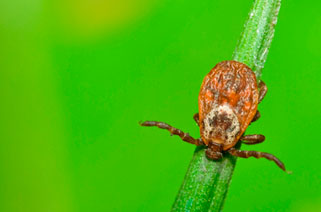Parasites!
While we are lucky that Aurora and Colorado, in general, doesn’t have much in the way of fleas and ticks, there are still plenty of internal parasites that need to be avoided.
One of the most common internal parasites in Colorado is Giardia. Giardia is common in dirty or standing water and we all know that dogs seem to think a puddle of standing water was put there just for them! Giardia, like many of the internal parasites, is zoonotic- which means it is transmittable to humans. There are various strains of giardia and not all of them affect humans and dogs equally. The giardia situation in Colorado is much more complicated but the fact is it is present in Aurora and other urban areas. Giardia is one of the parasites our veterinary team looks for when running routine fecal checks during our wellness exams.
Worms make up another big group of internal parasites. Hookworms, whipworms, roundworms, and tapeworms to name a few! While you can often see the adult worms just by looking at your dog’s poop, fecal testing can also check for the eggs of these worms before they reach the adult stage. Despite each being worms, they all respond to different types of treatment and it is important to identify the specific type of worms present. Additionally, some worms, like whipworms, have a variety of life stages and each one needs to be addressed.
Even though Aurora doesn’t have a high flea population there are still other external parasites that can’t be ignored. Cuterebra is one such parasite that is found near rodents and rabbits. We will keep it brief but these little parasites insert themselves into the skin of your pet and begin to grow. The whole process has more similarities to science fiction than most other parasites! These little guys need to be removed in a very specific way to keep your pet safe. Luckily our practice doesn’t see these critters too often either!
All in all, we are lucky to live in Aurora when it comes to pest and parasites! But keeping your pet parasite free is still a basic part of keeping them healthy! Most internal parasites, like giardia, coccidia, and worms, cause diarrhea. If you’re seeing any change in the consistency of your pet’s stool contact us today and let’s schedule an appointment for a fecal check. Otherwise, we can catch most parasites early on through routine wellness checks.

